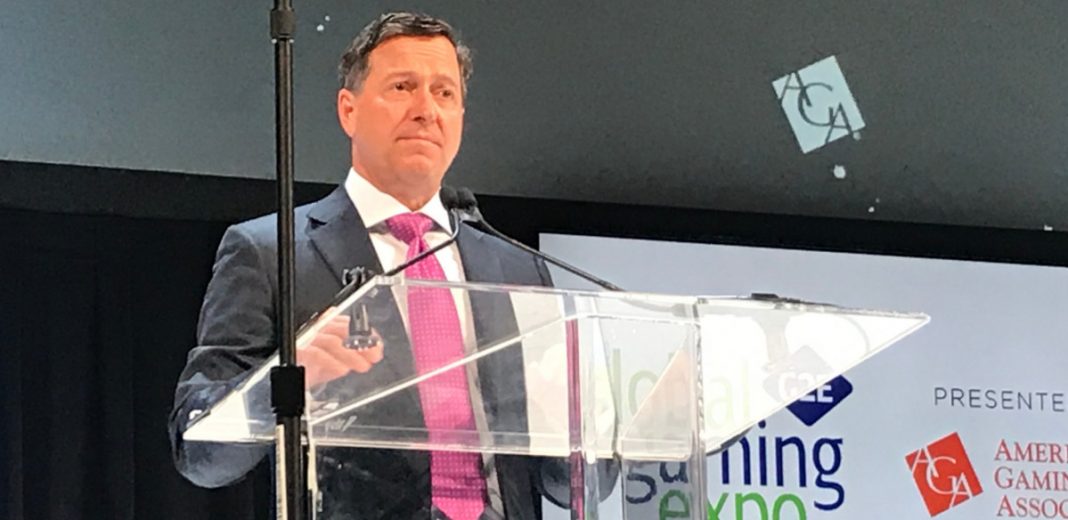American Gaming Association (AGA) President and CEO Bill Miller has penned a powerful missive to the media focusing on eradicating the illegal sports betting market. Written to coincide with the two-year anniversary of PASPA’s invalidation, he drew attention to the shared responsibility to not promote the illegal offshore sports betting market.
Highlighting the shortcomings of the Act and the importance of its repeal, he wrote:“PASPA never came close to doing what policymakers intended. Instead of protecting competition, the failed law perpetuated a massive, $150bn-a-year illegal marketplace that left athletes and consumers vulnerable.
“Those protections only exist when sports betting can come out of the shadows and under the watchful eyes of experienced gaming regulators—which is why the American Gaming Association remains committed to expanding these safeguards today.”
That said, Miller believes there is still a challenge regarding the ability for consumers to distinguish between safe, legal US sportsbooks and unregulated offshore operators.
Miller even went as far to suggest that the challenge will become increasingly harder through the legitimization of the illegal market by mainstream publications. He listed Yahoo! Sports, and The Wall Street Journal as examples who often blur the lines between the two markets.
He added: “The distinction between the legal and illegal market is essential. The US gaming industry is one of the most highly regulated in the country, with more than 4,000 state regulators dedicated to ensuring the integrity of games and bets—something that cannot be said for the unregulated operators offering bets.
“The illegal sports betting market funds nefarious activity like money laundering, drug trade, and human trafficking without paying a penny in taxes.Unregulated sportsbooks also lack any responsible gaming measures. Licensed operators commit hundreds of millions of dollars annually to promote responsible gaming and combat problem gambling.
“Additionally, unlike the legal, regulated market, there are no guaranteed payouts in the offshore market. Offshore operators have a storied history of failing to pay out winning wagers and folding altogether when they go bankrupt. Not to mention the lack of safeguards for financial data.But here’s the stark difference in plain terms: illegal, unregulated sportsbooks are predatory.
“For decades, federal and state law enforcement entities and attorneys general from across the country allocated resources to combat illegal gambling operations and the illicit activities they beget. Together, we joined forces to advocate for the Supreme Court to overturn the failed federal ban and pave the way for more Americans than ever before to have safe, legal options to bet on sports.”
Miller believes that some editorial coverage is still helping to perpetuateing the illegal sports betting market by with confusing contentcontinuing to confuse consumers. The CEO described how the use of the word ‘offshore’ when referring to such entities is not good enough, concluding as he concluded: “If I had my way, the media wouldn’t write about these sportsbooks at all, but I recognize that stories on prop bets on atypical things such as politics or the weather will naturally draw some eyes.
“Responsibility for educating the public is shared amongst everyone in the sports betting ecosystem. Media organizations should do their part, too.”














